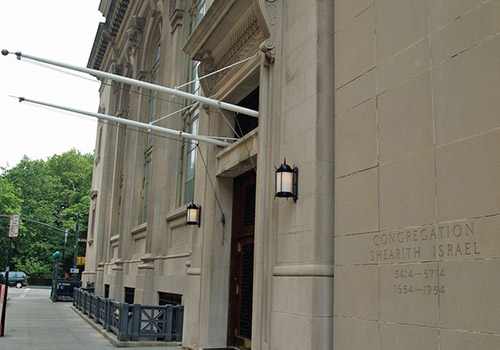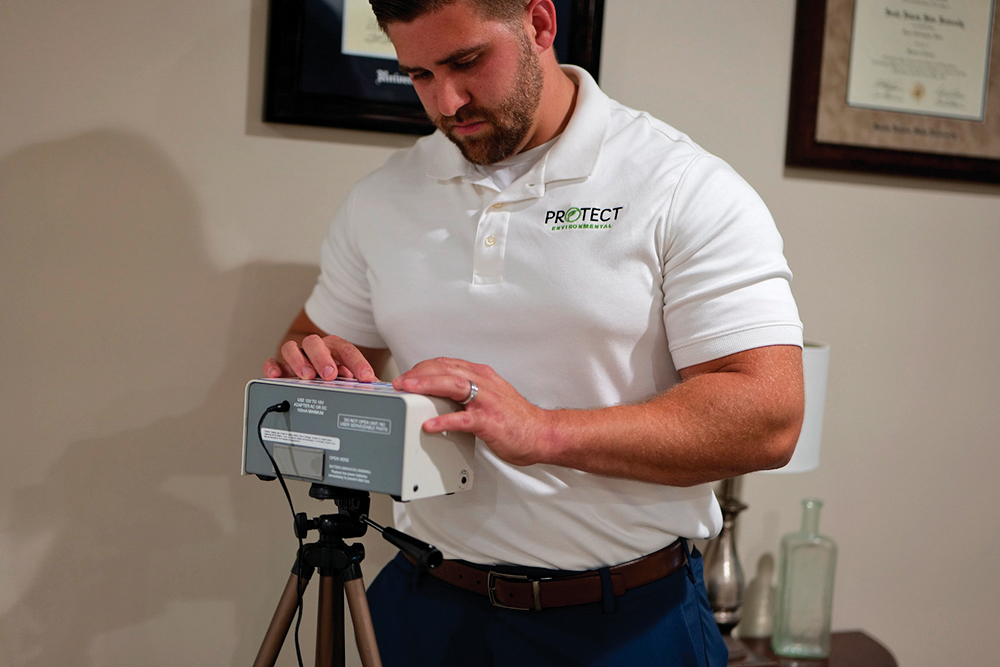
The Spanish-Portuguese Synagogue—the oldest synagogue in the United States—may be held accountable for employment discrimination for firing its program director, according to a recent federal appellate court decision.
From 2004 through 2015, Alana Shultz served as program director for the historic synagogue, a position that involved planning events and assisting with the nursery school program. She claims that in July 2015 she was summoned to meet synagogue officials who told her that her employment would be terminated, effective two weeks after the meeting, and that her position was being eliminated due to “restructuring.”
However, Shultz alleges that the “restructuring” was a pretextual excuse, and that the true reason was the fact that she was 19 weeks pregnant at her wedding. Indeed, she claims that shortly before being fired she was asked to meet with the synagogue’s executive director, who engaged Shultz in an extensive discussion about her pregnancy.
After her attorneys notified the congregation’s counsel that she had sought to pursue a lawsuit stemming from her termination, she received a letter stating that the congregation had “reinstated” her to her position, though Shultz contends that the letter wasn’t a bona fide or unconditional reinstatement.
When the case came before the lower court, it ruled for dismissal, due to the fact that Shultz was never actually fired—only threatened that she would be fired in the future. Thus, the court reasoned, since the synagogue never ultimately fired her, she never experienced an “adverse employment action” as contemplated by the federal discrimination statutes and thus by law could not maintain a lawsuit against her former employer.
Last week the Second Circuit Court of Appeals overruled the lower court’s determination. It held that although each side had presented appealing arguments regarding whether Shultz had suffered “adverse employment action,” the court must follow Supreme Court precedent, which holds that even merely being notified of a future termination is a sufficiently adverse employment action.
Although the Supreme Court never ruled directly on this matter, the court applied a principle from a related case in which the Supreme Court determined the statute of limitations starts to run when an employee is notified of a future adverse employment action—not the action itself. The Second Circuit interpreted this to mean that the notice itself is construed as an adverse action under the applicable federal statute.
The appellate court was not asked to rule on—at least not at this stage of the litigation—whether the “ministerial exception” applies to this case. The ministerial exception exempts religious institutions from anti-discrimination laws in hiring and firing employees. Thus, although a supermarket cannot demand that its cashiers be of a particular gender, a synagogue can demand that its rabbi be a male—and the government cannot claim that the synagogue is illegally discriminating against women.
It is likely that the ministerial exception could apply to Shultz as well. While not employed as a rabbi, she is the program director—a role that, as noted above, involves assisting the nursery program, planning events and presumably promoting the institution’s mission. Her duties, which are quasi-religious, are possibly sufficient to invoke the ministerial exception. In fact, in 2012, the Supreme Court determined that a religious-school teacher who teaches mostly secular subjects could not sue her employer, as the ministerial exception would apply even to her position. Other cases have found the ministerial exception to extend to a music director and even a press secretary.
Shultz’s case, though not yet decided, could potentially set an ominous precedent for yeshivas and synagogues, who surely prefer hiring teachers, dorm counselors and program directors who are religious and of a certain gender, especially in gender-distinct schools.
It is worth noting that the synagogue categorically denies Shultz’s allegations, and the court has yet to determine whether the facts presented herein are accurate.
By Joey Aron, Esq.
Joey Aron is the founder of Aron Law PLLC, a boutique firm located in Boro Park, practicing primarily in the areas of employment law.













